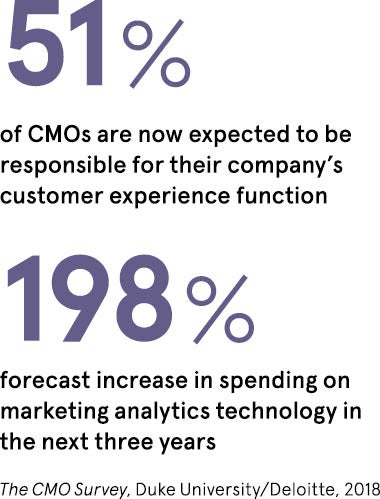
Our relationship with companies has changed. As customers, whether shopping for a family dinner or working with colleagues to buy a multi-million-dollar IT system, what we expect from a company is very different from fifteen or even ten years ago.
Back then when deciding what to buy in the supermarket, we drew on marketing messages and some word-of-mouth recommendations. We didn’t expect a company to “understand” us, but we did respond to, or even revelled in, the best marketing campaigns.
Similarly, those buying business products and services back then may have read some of the generic marketing literature they were sent but, if considering a purchase, they would probably call the sales team to discuss what they wanted.
This has been changed by what Steve Lucas, chief executive of Marketo, calls the “engagement economy” where, as he says, “more than half of humanity is now connected by social and mobile platforms, apps and devices”. Because it’s now so easy to communicate personally with organisations and each other, we have far higher expectations that companies understand us as individuals.
Yes, highly memorable marketing campaigns will still generate huge interest, such as Nike’s Breaking 2 initiative to help a runner break the daunting two-hour mark for the marathon. But while resonant stories will remain at the heart of good marketing, marketers must now make that story relevant for every customer in every channel.

For example, a new runner may be inspired by Breaking 2, but doesn’t then need an email follow-up promoting shoes when they’ve already bought their first pair. What they may need, however, is a newsletter with training advice and suggestions for extra clothing to buy.
And this is where the marketer’s role has changed. Not only should the marketer be personalising content for customers, the customer now expects it. Indeed, the new runner would probably be disillusioned with the brand if it tried to sell him or her the same shoes they just bought.
This is no different for business-to-business (B2B) marketers. Business buyers get a long way through the purchase decision before they ever actually speak to a sales rep. They expect to spend minimal time discussing their needs, as they think they already know what they want, and more time haggling over price.
To counter this, marketers need to nurture them throughout the buying cycle by finding the right decision-makers before they are considering a purchase and engage them with useful content. As Mr Lucas says: “Marketers must now curate the entire customer experience.”
Marketing function of the future
In both B2B and business-to-consumer situations, then, marketers have a more prominent role to play than they once did. The purpose of the marketing function of the future will be not to just promote products, but to represent the company in the engagement economy – in every interaction the company has with its customers across all channels – and to ensure that, when a customer wants to buy or ask for service, it is as effortless as possible.
This is scary for many of the world’s marketing professionals. They still need to create stories that appeal to their core audience, but must also understand and chart the full customer journey, and provide the right communication at the right time in the right channel. This is exactly what we as customers expect and we will happily turn to a competitor if we don’t get it.
On top of that, because this mass personalisation requires so much effort, many marketers now work daily with artificial intelligence (AI). The right AI will help firms find trends in the terabytes of customer data they collect and personalise their marketing based on those insights. This is not only something new to master, but also something many marketers fear; they worry they will lose their jobs, either to an algorithm or to a data scientist.
The role of marketing is becoming so integral to everything a company does in the engagement economy that marketers will be in demand for years to come
Yet this isn’t the case at all. First, mass personalisation is impossible without technology. And second, the role of marketing is becoming so integral to everything a company does in the engagement economy that marketers will be in demand for years to come.
With this greater understanding of customers, the chief marketing officer (CMO) of the future and his or her staff also need a greater understanding of data and technology. Current customer relationship management systems record what customers have told a company, whereas this new approach will enable marketers to record “engagement and experience data”, as Mr Lucas puts it.
This is much more powerful, as it tracks how people actually behave, rather than how they say they act. Coupled with AI, this enables marketers to get smarter and more focused, and serve their customer even better.
Make the most of the future – be fearless
To capitalise on all this change, marketers must learn to be fearless, as members of Marketo’s Marketing Nation community demonstrate. And, as Sarah Kennedy, CMO of Marketo, says when asked about the best advice she’s ever been given: “Jump out of the plane first, then find your parachute on the way down.” Marketers can’t afford to let perfectionism get in the way of experimenting and learning.
CMOs should use this fearless approach to focus on three priorities. First, they need to understand what information, technology and support their teams need. This should include complete comfort with owning and operating the martech stack, including embracing the use of AI tools.
Second, they must ensure the marketing function and the broader organisation have the right organisational structure to make this new approach to marketing work.
And last, but certainly not least, CMOs must recruit the right mix of people. In this new environment, marketing teams need as many “left-brain” thinkers as more traditional creative “right-brain” ones.
So, the future marketing function will be one that is far more powerful and important to its company. But CMOs need to be fearless in taking a more prominent role to help their teams and organisations meld traditional marketing skills, which have never been more important, with the right technology and approach.
Learn how Marketo’s platform and AI capabilities help marketers with mass personalisation, and give them the tools to be the fearless leaders they now need to be by visiting uk.marketo.com


